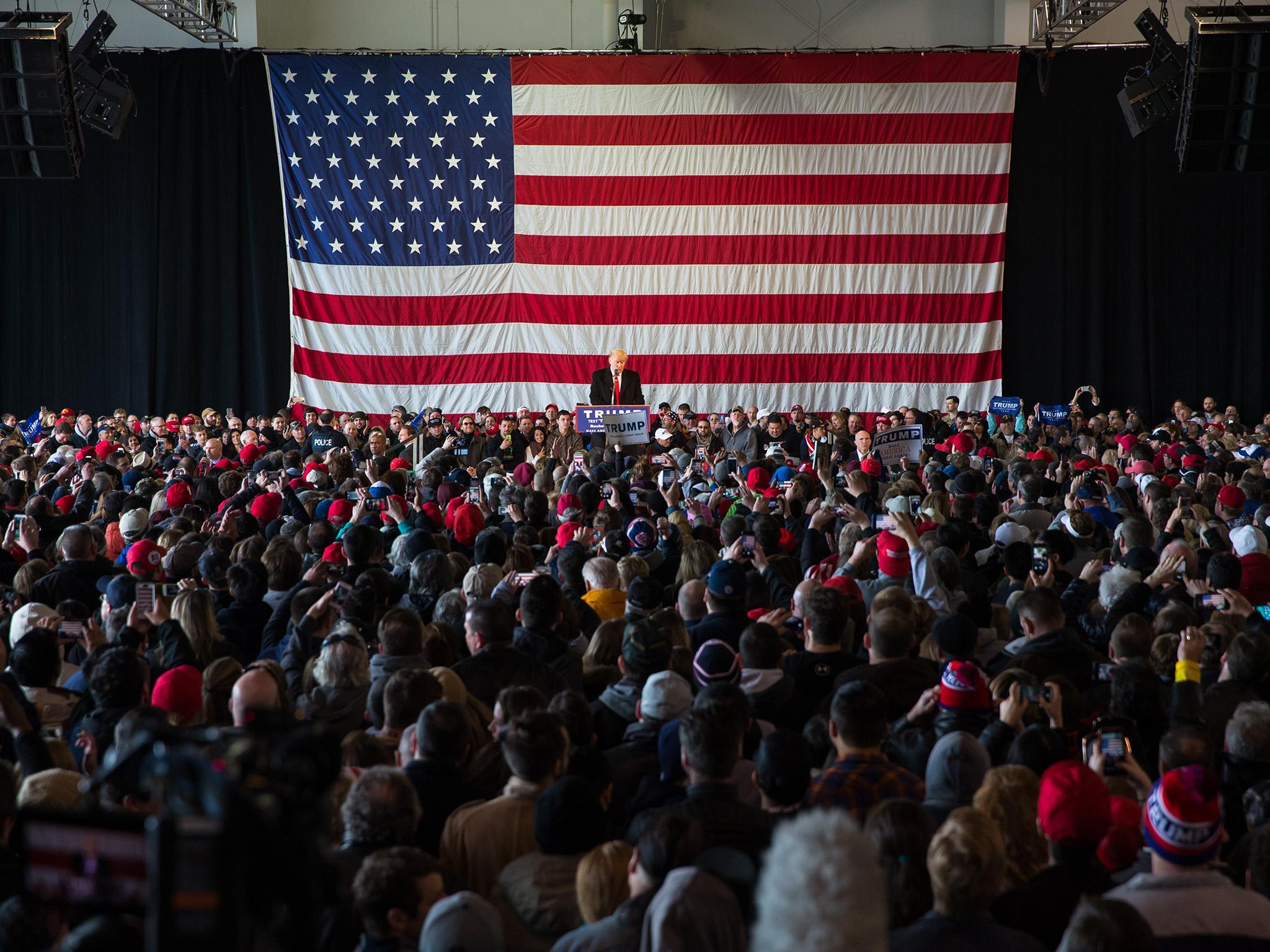The Electoral College has failed America and democracy in electing Donald Trump
With the CIA, FBI, and US Director of National Intelligence all agreeing that Russia intervened in the 2016 US election to help Donald Trump win, never has there been a greater need for oversight of the integrity of the US electoral process

Your support helps us to tell the story
From reproductive rights to climate change to Big Tech, The Independent is on the ground when the story is developing. Whether it's investigating the financials of Elon Musk's pro-Trump PAC or producing our latest documentary, 'The A Word', which shines a light on the American women fighting for reproductive rights, we know how important it is to parse out the facts from the messaging.
At such a critical moment in US history, we need reporters on the ground. Your donation allows us to keep sending journalists to speak to both sides of the story.
The Independent is trusted by Americans across the entire political spectrum. And unlike many other quality news outlets, we choose not to lock Americans out of our reporting and analysis with paywalls. We believe quality journalism should be available to everyone, paid for by those who can afford it.
Your support makes all the difference.There were a number of faithless electors in yesterday’s vote, and the official election history books will confirm that John Kasich, Colin Powell, and Ron Paul were all awarded an Electoral College vote.
But the ratification by the Electoral College confirms that the United States can no longer refer to itself as the world’s greatest democracy.
Throughout his campaign, Donald Trump has been consistent in his lack of respect for facts. He denies the recent Time attribution as President of the Divided States of America, but the vote facts speak for themselves. Trump received 46 per cent of the vote, which in terms of the country’s total population equates to just 19.7 per cent. Trump is President-elect because of less than 20 per cent of the population. That is no landslide, and certainly no mandate.
How then can the Electoral College claim to be an arbiter of American democracy?
For most of its inauspicious history, the Electoral College has been regarded as a quirky peculiarity of US politics, with few Americans understanding its role or what it does, and even fewer foreigners seeing any sense in it.
The creation of the Electoral College tells us its own story about the formation of modern America, and its embrace of independence from colonial rule.
When confronted with the task of creating a government for their newly independent sovereign nation, America’s so-called “Founding Fathers” were very distrustful of foreign intervention in their government. They wished not to see a return to colonial enslavement, so ensured that their Constitution prohibited non natural-born citizens assuming the presidency. They wanted to ensure that only an American would govern Americans.
But the Founding Fathers were also wary that foreign interventions could play mischief with the electoral process. In March 1788, Alexander Hamilton published The Federalist Papers: No 68 (under a pseudonym), writing, “… the desire in foreign powers to gain an improper ascendant in our councils. How could they better gratify this, than by raising a creature of their own to the chief magistracy of the Union?”
With the CIA, FBI, and US Director of National Intelligence all agreeing that Russia intervened in the 2016 US election to help Donald Trump win, never has there been a greater need for oversight of the integrity of the US electoral process.
But whilst the Founding Fathers supported the ideals of democracy, Alexander Hamilton, Thomas Jefferson, John Adams, and Benjamin Franklin were all opposed to it in practice, saying, “If we incline too much to democracy we shall soon shoot into a monarchy, or some other form of a dictatorship.” This statement fits with the quote often attributed to Winston Churchill, that the best argument against democracy is a five minute conversation with the average voter.
Fear of foreign intervention, and a lack of faith in voters to exercise sound judgement drove the Founding Fathers to design a fail-safe mechanism – the Electoral College.
Today marks the second time in 16 years that the Electoral College has voted for president a man who the public rejected. With mounting evidence that the 2016 presidential election was compromised in some form to some degree, it was the responsibility of the Electoral College to fulfil their constitutional obligation and not simply act as a rubber-stamp.
These two facts alone confirm that the presidential election process and the role of the Electoral College need serious inquiry into their role and very existence.
The future of American democracy depends on it.
Bryan Cranston is a political scientist and US political analyst with Swinburne University in Australia
Join our commenting forum
Join thought-provoking conversations, follow other Independent readers and see their replies
Comments